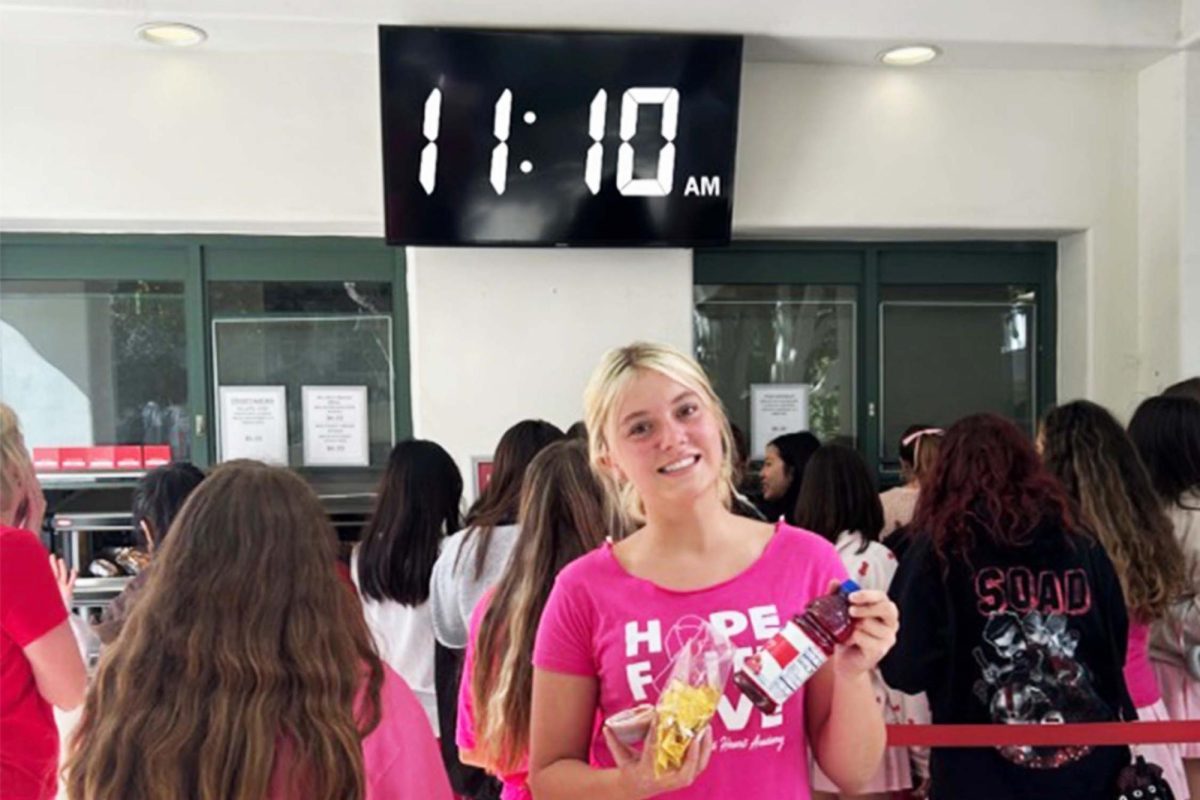Are you, like most Tologs, wondering why Flintridge Sacred Heart instituted a radically different daily schedule this year?
According to administration officials, it’s because these changes—which include an earlier start, an earlier lunch, a daily community block, and a later end to the day—provide a range of benefits to students’ mental and physical health.
“The biggest addition was … making time in our schedule to ensure the teaching of social emotional health—essentially, the non-academic learning that we want to make sure every student receives in order to support her academic learning,” Mrs. Rebecca Bostic, school principal, said.
Mrs. Bostic explained that in addition to supporting students’ mental health, the new daily block, known as “Tolog Time,” also gives students the time to collaborate on academic group projects and receive one-on-one guidance and support from teachers.
“I appreciate catching up on work because it is quiet around campus. I can find somewhere quiet and sit down to do homework for the next class, or study if I have a test next block, or just take time to decompress.” Paige Perkins ‘25 said.
The goal of Tolog Time is not only to improve students’ academic motivation but also their academic performance.
“Studies show that when students feel a strong sense of community, they perform better academically,” Mrs. Bostic said.
The importance of community building is highlighted in assemblies and in class meetings that take place during Tolog Time.
But why, you may be asking, does community building necessitate an earlier lunch? According to administration officials, lunching in the late morning can be much healthier than lunching in the afternoon.
“For girls who don’t eat breakfast, they are getting a more nutritious meal, instead of waiting till 1:00,” athletic trainer Ms. Borrego said.
An earlier lunch can help Tologs achieve a healthier diet, which can, in turn, improve their academic performance. For individuals who struggle with finding time to eat in the morning, an early lunch supports them in having a more nutritious diet, therefore assisting them with academics and enhancing their overall educational experience.
“I actually like it. Let’s say if I don’t get breakfast in the morning, and I’m hungry, and have two classes, … I get a long break. Let’s say I want to study for a class, I get to eat and just chill and take a brain break,” Reni Martinez, ‘25 said.


